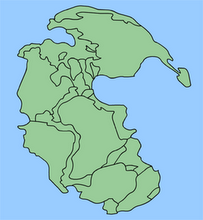Think what it was originally designed to do. As we settled into static villages, cultural specialists appeared for the first time. No longer did everybody have to gather their own food. One person could spend their entire time making shoes, another, baking bread. Universal tokens (money) allowed the cobbler to obtain bread, even if the baker didn't need any shoes. These are extremely simplistic terms, of course, but you get the idea. A co-operative game of happy families really. That's economics.
After this, we really forgot how it worked. We became fixated on the tokens themselves, the least important part of the whole arrangement. Our second great mistake was to fashion the tokens with rare metals, transferring the value from skills to coinage, making the symbol itself valuable. When it clearly wasn't. Which would you rather be stranded on a desert island with? Cash and gold bars? Or somebody who can make a raft and navigate by the stars? The only use for the tokens in this case is maybe using the gold bars as a paper weight for the notes. You don't really need super conducting metals on a raft. To be enthralled by gleaming things is childish. The only true value is the value that is inherent. The world might end, but an intact bottle of fine wine would still be a bottle of fine wine.
 Unless you're building a computer, you probably don't need this.
Unless you're building a computer, you probably don't need this.It's like we've settled down to play a game of cards, and for some reason, we've let one group, for their own obvious benefit, make up all the rules.
 The key thing, which we've lost, is understanding that economics is based on co-operation. We've got it into our heads that the opposite is true: competition. Then we've engineered a set of rules to make it so. If we keep tokens locked up in a dark room they multiply? They're not fucking mushrooms! Tokens are meant to be used. If not, they are wasted. What we're left with is a massively overcomplicated token exchange system which generates desolation, pollution, starvation; all the lowest forms of privation. It's no coincidence that for every person with 500 pairs of shoes, there are 500 people without any at all.
The key thing, which we've lost, is understanding that economics is based on co-operation. We've got it into our heads that the opposite is true: competition. Then we've engineered a set of rules to make it so. If we keep tokens locked up in a dark room they multiply? They're not fucking mushrooms! Tokens are meant to be used. If not, they are wasted. What we're left with is a massively overcomplicated token exchange system which generates desolation, pollution, starvation; all the lowest forms of privation. It's no coincidence that for every person with 500 pairs of shoes, there are 500 people without any at all.In the future, if we survive, people will regard this system as a particularly backward branch of science. Like we think of alchemy today. Actually, alchemy makes a lot more sense than our strain of economics. Lead into gold, for example. It's already possible. You just have to change the number of protons. Let's get some perspective. If we had easy access to an unlimited amount of clean energy, by the rules we play, it would be worthless. Honestly, you couldn't sell it, and selling is our mantra. Something that readily available would have no value. Of course, we all know this is not true. It would be the most precious discovery of all time. Just because you couldn't sell the air we breathe, doesn't mean it's worthless. For the sake of profit margins, though, we'll fill it with toxins. A powerful indictment of our deeply flawed bartering arrangements.
This is the monster we've created. It only persists, because we're used to thinking that way. A change is overdue. A change would be good.
Usually, points like these are made without recompense. Questions are asked and no answers are given. Criticising the status quo is largely a negative process, undermining but never delivering anything in its place, so it's important to offer up an alternative. Here is a solution:
How should a token work? In what way should it be crafted? To give credence, while at the same time, avoiding any attraction or false value of its own; to avoid the traps we've previously fallen into. It has to be possible for any human being to generate a token, only in limited numbers to avoid runaway inflation. Unique, ephemeral and somewhat repellent. There is such a thing that can be used for this purpose. Faeces.
Obviously a material which people would seek to avoid handling whenever possible, exchanging skills would again be the prime mode of economics. A co-operative. Human shit would be authentic, no animal variations could be used as forgery, with the smallest amount of training, anybody could spot the difference in the defecation of another species. The tokens would have a naturally short lifespan, disintegrating within hours or days to avoid stockpiling (though single use would be most appropriate). Furthermore, earth based sanitary methods (latrine trenches) would absorb all waste and leave no trace, reducing the amount of water used by society, and avoiding the possibility of currency being stolen from sewers. Remember this with a smile when you are next asked how solvent you are, financially.
 Encouraging, or even allowing somebody to harm themselves is human sacrifice. Like a general ordering soldiers into battle, or a
Encouraging, or even allowing somebody to harm themselves is human sacrifice. Like a general ordering soldiers into battle, or a 

